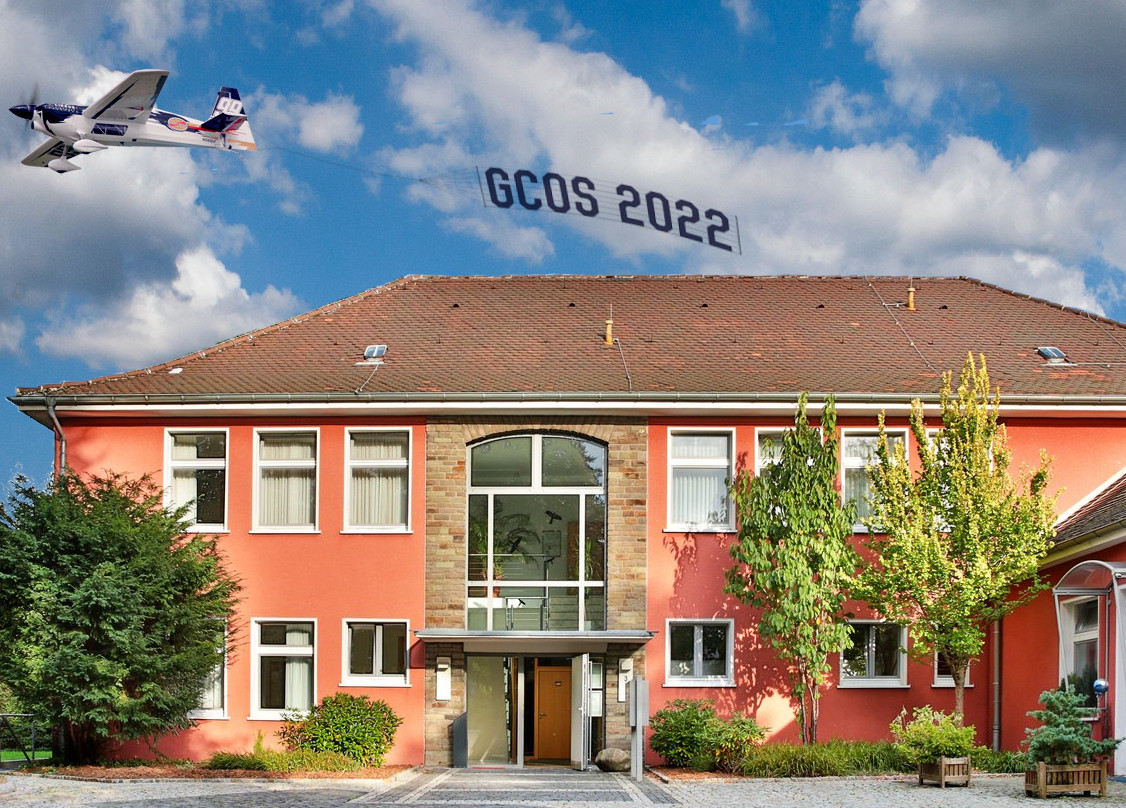GCOS workshop 2022 Wuppertal
Aim of the workshop is to further advance our plannings towards the Global Cosmic Ray Observatory - GCOS. One of the main objectives will be to develop astrophysical science case scenarios and to agree on a few straw man designs, which can be used for simulations in order to concretize the expected performance of GCOS for key performance indicators.
The results of the workshop will be written up in a document
GCOS workshop 2022
concepts and ideas for the science case and a straw man design
as a reference for the further development of GCOS.
The workshop will be hosted at the University of Wuppertal in Germany. Remote connection via zoom will be provided. For an efficient discussion we encourage key people to be present on site.
Organizers:
Rafael Alves Batista, Antonella Castellina, Ralph Engel, Toshihiro Fujii, Jörg Hörandel, Karl-Heinz Kampert, Lu Lu, Ioana Maris, Shoichi Ogio, Julian Rautenberg, Takashi Sako, Fred Sarazin, Michael Unger

-
-
09:00
→
09:15
Opening and scope of workshop 15m
—> develop straw man design(s) for detectors and arrays to be used for (more) detailed performance studies (resolution for energy, mass, direction)
Speakers: Julian Rautenberg, Jörg Hörandel (Radboud University Nijmegen dep. Astrophysics) -
09:15
→
10:00
Discussion: Overview and Recommendations of the Snowmass UHECR white paper 45mSpeaker: Fred Sarazin
-
10:00
→
10:15
coffee 15m
- 10:15 → 11:00
-
11:00
→
11:15
coffee 15m
- 11:15 → 12:00
-
12:00
→
13:30
lunch 1h 30m
-
13:30
→
14:30
Define concrete goal of workshop, define key questions/key performance indicators what detector do we need to achieve the science goal(s)? 1h
-
14:30
→
15:00
coffee 30m
-
15:00
→
15:55
Expert Round: Science CaseConveners: Dennis Soldin, Michael Unger, Rafael Alves Batista (Radboud University)
-
15:00
Introduction 1mSpeaker: Rafael Alves Batista (Radboud University)
- 15:01
- 15:08
- 15:15
-
15:22
Measuring the hair of the UHECR energy spectrum with GCOS 5mSpeaker: Glennys Farrar
- 15:29
-
15:36
Soruce constraints from \nu and p with GCOS 5mSpeaker: Marco Muzio (New York University)
- 15:43
-
15:50
Fits of flux, composition and arrival directions with GCOS statistics 5mSpeaker: Teresa Bister
-
15:00
-
16:00
→
16:55
Expert Round: FD Design
The audio and (largly corrupted) video is included in the previous session material.
Conveners: Michael Unger, Toshihiro Fujii (Kyoto University)-
16:00
Introduction 1mSpeakers: Michael Unger, Toshihiro Fujii (Kyoto University)
-
16:01
Cyclops vs. Superman: Design Considerations for Auger South FD 5mSpeaker: Bruce Dawson
-
16:07
Design Considerations for TA FD 5mSpeaker: Shoichi Ogio (Institute for Cosmic Ray Research, The University of Tokyo)
-
16:13
Does GCOS need an FD? 12mSpeaker: All
- 16:25
- 16:31
-
16:37
Ideas for FD Optimization 5mSpeaker: Francesco Salamida (University of L'Aquila and INFN LNGS)
-
16:43
Discussion 12mSpeaker: All
-
16:00
-
17:00
→
18:00
Expert Round: SD Design
The audio and (largely corrupted) video is included in the discussion session material
Conveners: Fred Sarazin, Ioana Maris (Université Libre de Bruxelles)- 17:00
- 17:05
-
17:10
Discussions 10m
- 17:20
-
17:25
Squre vs triangular array 5mSpeaker: Roth Markus (KIT)
-
17:35
Discussions 20m
-
18:00
→
18:55
Expert Round: RD DesignConveners: Julian Rautenberg, Jörg Hörandel (Radboud University Nijmegen dep. Astrophysics)
-
18:00
remarks on radio detection 5mSpeaker: Jörg Hörandel (Radboud University Nijmegen dep. Astrophysics)
-
18:05
remarks on radio detection and gamma rays 5mSpeaker: Julian Rautenberg (University of Wuppertal)
-
18:10
considerations for array configurations, including neutrinos 5mSpeaker: Washington Carvalho Jr
-
18:15
a quick array simulator 5mSpeaker: Tomas Fodran (Radboud University)
-
18:00
-
19:00
→
21:00
dinner 2h
-
09:00
→
09:15
-
-
09:00
→
12:00
Brainstorming and blackboard discussions to prepare afternoon expert rounds and to set up structure of the workshop document 3h
- science case(s)
- straw man designs
- begin writing document
Speaker: all -
12:00
→
13:30
lunch 1h 30m
-
13:30
→
14:30
Discussions editing document 1h
-
14:30
→
15:00
coffee 30m
-
15:00
→
15:55
Expert Round: Science CaseConveners: Dennis Soldin, Michael Unger, Rafael Alves Batista (Radboud University)
-
15:00
Science Case Panel Discussion 55m
Audio material contains following session as well.
Video was largly corrupted, most probably due to network outages.Speaker: All
-
15:00
-
16:00
→
16:55
Expert Round: FD Design
The audio and (largly corrupted) video is included in the previous session material.
Conveners: Michael Unger, Toshihiro Fujii (Kyoto University)- 16:00
- 16:05
-
16:10
The algorithm for the FAST reconstruction and its performance 5mSpeaker: Jose Bellido
- 16:15
-
16:20
Neutrino Searches with GCOS FD 5mSpeaker: Francesco Salamida (University of L'Aquila and INFN LNGS)
-
16:25
Discussion 30mSpeaker: All
-
17:00
→
18:00
Expert Round: SD Design
The audio and (largely corrupted) video is included in the discussion session material
Conveners: Fred Sarazin, Ioana Maris (Université Libre de Bruxelles)-
17:00
Mass resolution with SSD + WCD 5mSpeaker: Eric Mayotte (University of Wuppertal)
-
17:05
TA surface detector 5mSpeaker: Nonaka Toshiyuki
-
17:10
Impact of relative positions of sub-detectors 5mSpeaker: Schmidt David
-
17:15
Ideal SD detector 5mSpeaker: Pierre Billoir
-
17:20
Segmented tank and spacing 5mSpeaker: Ioana Maris (Université Libre de Bruxelles)
-
17:25
Synergies with SWGO 5mSpeaker: Jose Bellido
-
17:30
Discussions 20m
-
17:00
-
18:00
→
18:55
Expert Round: RD DesignConveners: Julian Rautenberg, Jörg Hörandel (Radboud University Nijmegen dep. Astrophysics)
-
19:00
→
21:00
dinner 2h
-
09:00
→
12:00
-
-
09:00
→
12:00
Brainstorming and blackboard discussions to converge on document: GCOS workshop 2022 - concepts and ideas for the science case and a straw man design 3h
-
12:00
→
13:30
lunch 1h 30m
-
13:30
→
16:30
Next steps, towards building prototypes, working groups, funding opportunities for prototypes, synergies with other initiatives 3h
-
17:00
→
17:10
End of workshop 10m
-
09:00
→
12:00
